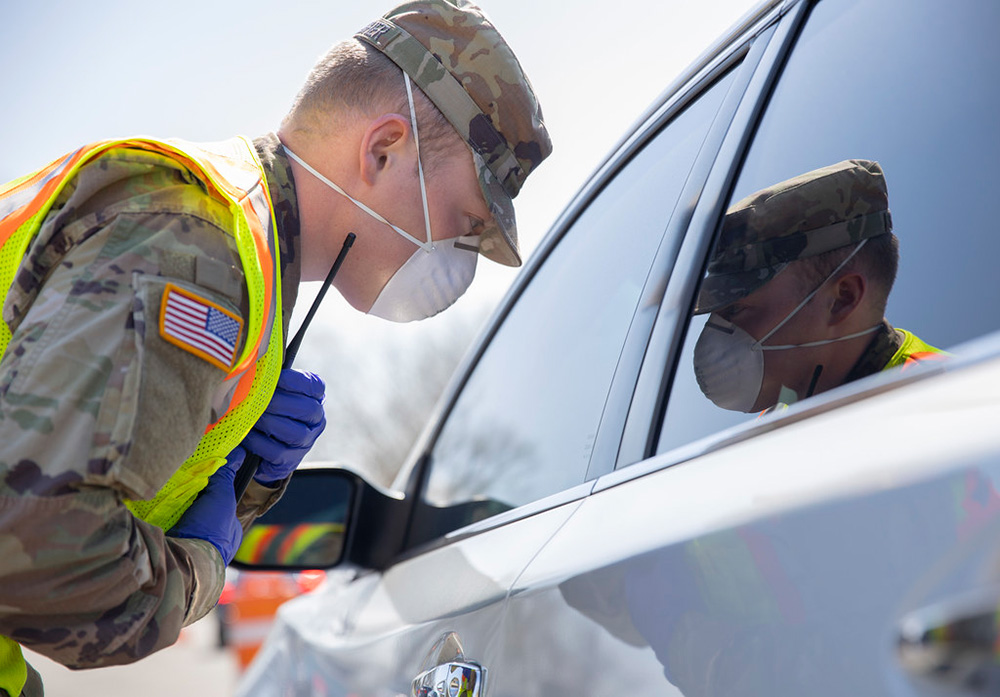Compiled by veteran medical journalist Brian Owens, this roundup of some of the newest science on the COVID-19 pandemic, straight from the scientific journals, is presented by Hakai Magazine in partnership with The Tyee.
Pandemic convinces Americans that big government is good
The proportion of U.S. adults who support an active government role in society increased dramatically during the early stages of the pandemic, up 10 percentage points in April 2020 compared with September 2019. A majority of people surveyed expressed support for seven of 11 social safety net policies, including 77 per cent in favour of two weeks paid sick leave, 60 per cent in favour of universal health insurance, and 58 per cent in favour of increasing the federal minimum wage. Other policies, such as single-payer health care and universal basic income, had less support, at 47 per cent and 39 per cent respectively.
American Journal of Public Health, Oct. 15, 2020
Conspiracy theories and trust in government affect intention to get vaccinated
While researchers rush to create vaccines for COVID-19, significant numbers of people remain hesitant about getting the shot when it becomes available. A collection of studies has found that, around the world, roughly 70 per cent of people plan to get a vaccine if it’s safe and effective — though in some countries, like Russia, the number is as low as 55 per cent.
Researchers have identified a variety of factors that influence someone’s willingness to be vaccinated. People who are pro-vaccine in general are also generally pro-COVID-19 vaccine, and those who think the pandemic is a major problem are more likely to want a vaccine. Trust in government is also closely linked to acceptance of a vaccine, while belief in conspiracy theories, such as the idea that the virus was created in a lab, or is made worse by 5G mobile phone signals, tends to increase hesitancy. Surprisingly, one U.S. study found no link between political ideology and attitudes towards a COVID-19 vaccine.
Nature Medicine, Oct. 20, 2020
Psychological Medicine, Oct. 19, 2020
Royal Society Open Science, Oct. 14, 2020

Coronaviruses have common vulnerabilities
The three deadly coronaviruses that have arisen in the past 20 years — SARS-CoV-1 in 2002, MERS-CoV in 2012 and SARS-CoV-2 in 2020 — have common vulnerabilities that could lead to broad treatments for all coronaviruses. A huge international study has identified several shared cellular processes and proteins that could be used as targets for therapies for the current pandemic, and any future ones.
The ‘silent’ mutations that help give the virus an edge in humans
Researchers have identified two mutations in the genetic code of SARS-CoV-2 that may partly explain why it is so effective at infecting humans compared with closely related, but harmless, coronaviruses found in bats and other animals. These so-called “silent” mutations in the virus’s genetic code seem to affect how the virus’s genetic material — it’s RNA — folds up into 3D shapes and functions inside human cells. It’s not clear how exactly these mutations may have helped the virus, but the researchers speculate that they may help it to spread before symptoms appear.
Medical procedures that pose the greatest risk to health-care workers
Autopsy, airway suctioning and CPR are the medical procedures that pose the greatest risk of contracting COVID-19 for health-care workers. These procedures are most likely to generate aerosols, the fine particles suspended in the air that can carry the virus.
BMJ Open Respiratory Research, Oct. 9, 2020
How the pandemic affected crime
The pandemic has affected not just the mainstream economy, but the criminal one as well. Researchers looked at daily commercial theft rates in a large city in China both before and after the first wave of infections and found that rates of theft dropped by 64 per cent during lockdown before bouncing back to rates that were higher than expected. Other studies have also found steep declines in most forms of crime during the pandemic, except for rates of domestic violence, which increased.
Type O blood might lower risk
People with Type O blood appear to have a lower risk of infection from SARS-CoV-2, and a less severe course of the disease if they do get sick. One study in Denmark found that fewer people with blood group O had tested positive for COVID-19 than those with A, B or AB blood. A second study done of people hospitalized with the disease in Vancouver found that blood groups A and AB were associated with more severe clinical outcomes and longer stays in intensive care than those with blood groups O or B.
Blood Advances, Oct. 14, 2020 (1)
Blood Advances, Oct. 14, 2020 (2)
Early trials of Chinese vaccine show promise
A vaccine candidate developed in China has shown promise in early clinical trials. All participants showed an antibody response within 42 days of injection, and no severe adverse reactions were reported. This potential vaccine is based on an inactivated version of the whole virus — a different approach to some of the other candidates currently undergoing trials, which are based on viral RNA or proteins.
The Lancet Infectious Diseases, Oct. 15, 2020 ![]()
Read more: Coronavirus, Science + Tech
















Tyee Commenting Guidelines
Comments that violate guidelines risk being deleted, and violations may result in a temporary or permanent user ban. Maintain the spirit of good conversation to stay in the discussion.
*Please note The Tyee is not a forum for spreading misinformation about COVID-19, denying its existence or minimizing its risk to public health.
Do:
Do not: